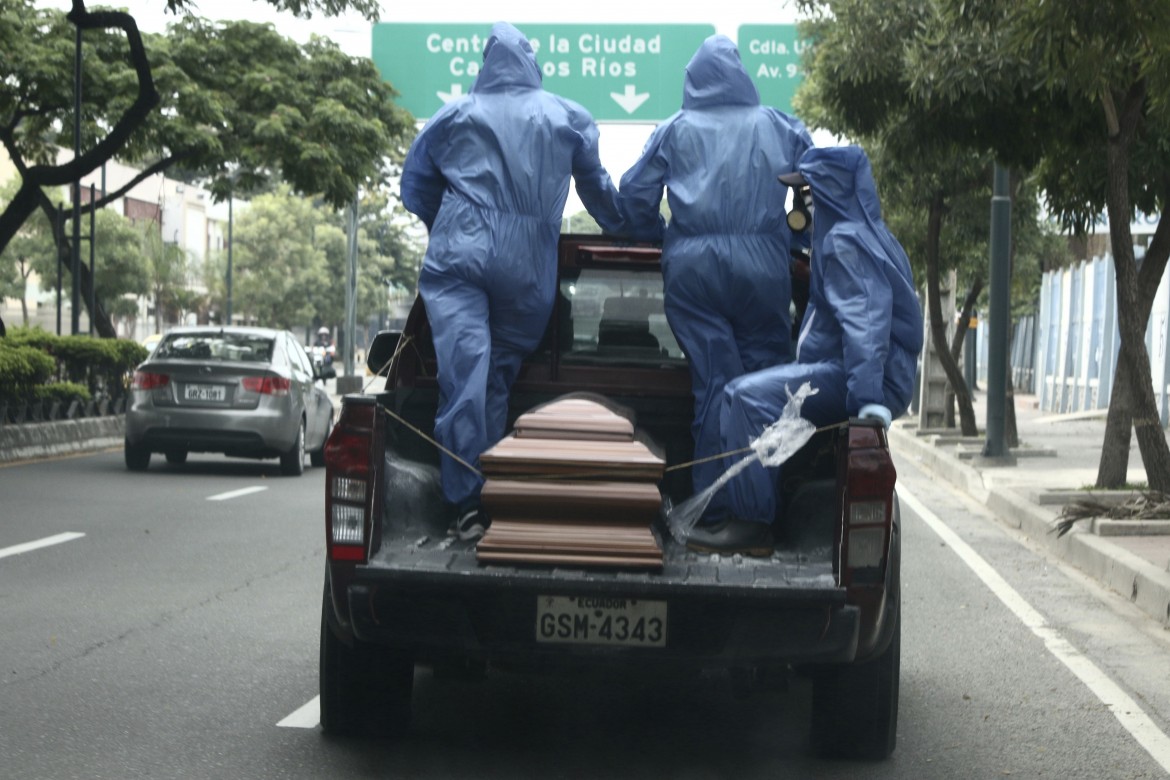Analysis
Moreno is hiding data, but in Guayaquil there are no more coffins
In Guayaquil, the Wuhan of Latin American, over 10,000 are dead, five times the typical number of deaths over the same time period. Yet the government of Ecuador says only a few hundred are dead.

In the last two months, deaths in Ecuador have increased at an abnormal pace. In the region of Guayas alone, with Guayaquil as its capital, there are over 10,000 dead, compared to a historical average of about 2,000 over the same period. 6,700 died in the first half of April alone.
The causes of the deaths are unknown: no tests are being carried out. Ecuador can only manage a few hundred swabs for COVID-19 per day. The health system (where it still exists) is collapsing, also because of the cuts in recent years, and in a country where there is no lack of poverty, malnutrition, dengue fever, malaria, tuberculosis and other tropical diseases, death is the order of the day.
But it has never come at such a pace as in these days, in cities as well as in the indigenous and Amazonian areas, because the extraction of oil and other raw materials has not stopped, with workers constantly moving between territories. What has changed from before? The arrival of COVID-19.
The Moreno government, even though it had no choice but to confirm the numbers of the deceased in Guayas, continues to put out low official figures for the contagion. The images from Guayaquil, with the dead piled up in the streets, have been seen around the world. Despite this, however, as of last Friday the government was still announcing only a few hundred dead and a few thousand infected.
By now, a steady acceleration can be seen even in the official figures: according to the Ministry of Health, there are currently just over 10,000 confirmed cases and about 500 dead.
But in Guayaquil alone, the coffins are running out and there is nowhere left to store the bodies. Decio Machado, an Ecuadorean political scientist, says that his is “a country of 17 million people that could be among the states with the highest percentage of victims and infected in the world, although the figures are not clear everywhere. It is undoubtedly the country with the worst numbers per capita in Latin America. Guayaquil is the epicenter of this pandemic, and it has become known as the Latin American Wuhan.”
According to President Moreno, last Tuesday the World Health Organization included Ecuador among the countries with the highest priority to receive health aid to fight the pandemic. The government has requested, and, according to the president, has secured the permission to be able to use WHO funds to buy medical equipment.
However, Decio Machado points out that “before the pandemic, the Moreno government had an approval rate between 4 and 7%, and now the figure is even worse. It has fallen by at least two points. There is generalized disapproval among the population regarding the management of the crisis.”
The government has set a national curfew between 2pm and 8am, allowing movement by car for only one day a week and closing down many economic and productive activities.
According to the World Bank, the health emergency, combined with the collapse in oil prices, will cost Ecuador’s economy at least six percentage points of GDP in 2020. And the oil crisis is becoming an opportunity for Moreno to place all the blame on his predecessor, Correa.
However, according to university professor Francesco Manigio, who has lived in the country for over five years, “the disaster we are experiencing is the consequence of the neoliberal policies imposed by Moreno. He has frozen investments in public health and made austerity even harsher. The government is still trying to keep itself in power by systematically censoring data, making use of discrimination with regard to the right to healthcare and employing persecution, with arrests among the social forces and opposition forces.”
Originally published at https://ilmanifesto.it/moreno-occulta-i-dati-ma-a-guayaquil-non-ci-sono-piu-bare/ on 2020-04-23
